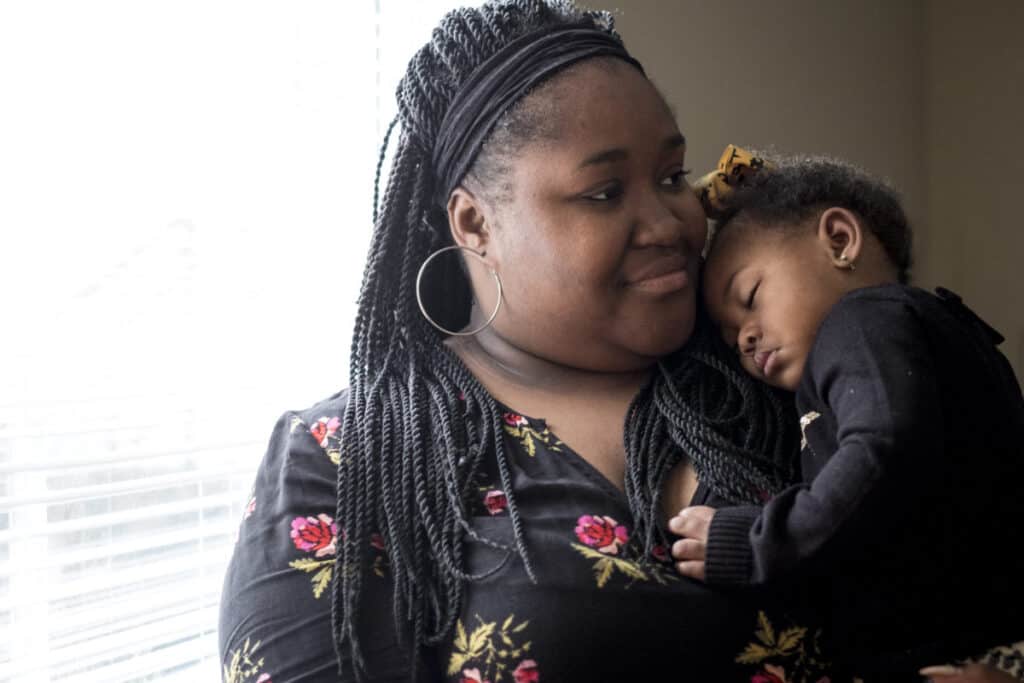If you think your child may have a disability, or if they’re struggling in school, you may want to start the education evaluation process.
You can ask the school for an evaluation to see if your child qualifies for Special Education. The evaluation is a series of tests to see if a child has a disability that affects their learning in school.
This evaluation may have a different name in your state. Some call it a Core Evaluation. In Louisiana it’s called a Pupil Appraisal or 1508 Evaluation. If your child is in a private school, they can still get this evaluation, but you may need to go to your local public school to get it done.
Usually your child’s teacher or other school staff will make a referral for the evaluation. But you can also do it yourself.
Here’s what you can do:
- Contact your child’s teacher or the Director of Special Education in your school district. Tell them you would like your child to have a Special Education evaluation.
- Put your request in writing (email is ok) and make sure it has a date. Even if you talk with your child’s teacher and agree to have this done, make sure to follow it up with an email or letter and share it with the principal and the school district’s Special Education Department.
- Sign the consent form for the evaluation when they send it to you.
- Ask questions! If there’s anything you don’t understand, ask them to clarify it for you.
Is your child not yet in school? You can still ask for an evaluation! If you suspect your child has a disability, start the process before they turn 3. Learn more about transitioning into school services at age 3.
You can still ask for an evaluation even if the school is trying different interventions to see if they help your child learn. (The interventions usually happen through a process called RTI.)
Your legal rights:
- The Individuals with Disabilities Education Act (IDEA) requires public schools to do this evaluation if there is a concern that the child may have a disability. This means if you–the parent or guardian–are concerned, they cannot refuse. And they have to pay for it.
- The school has to do the evaluation and explain the results in your family’s preferred language. You have the right to have a professional interpreter at the meeting (don’t forget to let them know ahead of time if you need one).
The school’s required timeline:
- When the school gets the request, they have 5 school days to give you a consent form to sign and a copy of the Procedural Safeguards, which explains the process and your rights in detail. (See the Procedural Safeguards for Louisiana and Massachusetts.)
- When the school gets your signed consent, they have 30 school days to do the evaluation, and 45 school days to give you the results.
What happens in the Special Education evaluation process?
Professionals will do a series of assessments that look at all areas that you or the teacher are concerned about. The results should give a detailed account of your child’s strengths, challenges and needs, along with recommendations for support and services.
The evaluation usually includes:
- Information from parents
- Observations of your child in school or daycare and maybe at home
- An interview with your child about their experience in school (if they are able)
- Formal and informal assessments (tests). There are many special tests that give a better picture of how your child learns, and what is hard for them. These will vary based on your child’s needs.
For example, they may test your child’s communication style, motor skills, social and emotional well-being, hearing, vision, memory, behaviors and abilities in different school subjects.
The evaluation should answer these questions:
- Does your child have a disability? What type?
- Does the disability keep your child from making normal progress in school?
- What kind of specially designed instruction or other services does your child need in order to follow the general curriculum?
Who does the assessments?
Qualified professionals will do each part of the evaluation. They may be learning specialists, reading specialists, school psychologists, occupational or speech therapists, or others.
Make sure to ask specifically for the kind of professional who can evaluate your concerns. (Read on if you’re not sure who that is).
How to prepare for the Special Education evaluation
Here are some tips to prepare for your child’s evaluation. Doing a few things ahead of time can help to make sure the school gets an accurate and complete picture of your child and what supports they might need.
Gather paperwork that describes your child’s issues. This may include:
- Medical records with diagnosis or test results
- Notes from a preschool teacher or caregiver
- Assessments and reports from Early Intervention or other therapy
Put all paperwork in your own binder and make copies for the evaluation team.
Write down all your concerns and be ready to talk about them.
Part of the evaluation may be an interview with you. We know it can be hard to list everything that worries you about your child! But don’t hold back. You want your child to get services and support for each concern you have.
Make sure the school evaluates your child for everything you are concerned about
The school should use a variety of assessment tools and strategies to get the whole picture of your child and their needs. And the school is required to check all areas where you or they suspect a disability.
Discuss this before you schedule the evaluation to make sure the right people are there to assess each of your areas of concern. This will help them to include all the services your child needs in the IEP.
For example:
- If your child has trouble with early reading skills, make sure a reading specialist is involved.
- If you have concerns about your child’s behavior, ask for a Functional Behavior Analysis (FBA). This can tell if your child could use a behavioral plan, which uses positive strategies to help them.
- If you’re concerned about your child’s social interactions or how well they can regulate their emotions, ask them to evaluate social-emotional skills.
- They can also check your child’s physical abilities: using their hands to hold things like crayons or pencils, or walking and climbing.
The eligibility meeting: find out if your child qualifies
Once the evaluation is complete, the school team will schedule an eligibility meeting. Here, the team will discuss the results of the evaluation and decide if your child qualifies for Special Education. If your child qualifies, they may skip this meeting and schedule the first IEP meeting. (IEP = Individualized Education Program) If this happens, make sure to ask for a draft of the IEP and review it before the meeting. Read more about the IEP meeting here.
REMEMBER: As a parent, you are an important member of the IEP team!
What are the possible outcomes?
- Your child qualifies for an IEP (Individualized Education Program). This means they will get Special Education services, based on their needs according to the evaluation results. If your child qualifies, the team will develop goals and identify supports for your child to meet those goals.
- Your child qualifies for a 504 Plan. A 504 Plan is a different type of service. This gives your child accommodations, or adjustments in the classroom to help them learn. 504 plans do not include specialized instruction or therapies like speech, occupational, or physical therapy.
- Your child does not qualify for Special Education or a 504 plan.
Speak up if you don’t agree with the decision! You know your child best, and you have a right to say what you think.
If your child doesn’t qualify and you disagree:
- Ask questions at the eligibility meeting. Make sure you understand why they made this decision. Ask what other services your child could still get. Read about less formal interventions here.
- Talk to your child’s teacher and others at the school and see what they think.
- Talk to your child if possible and see what they think. Do they feel they can succeed in their classroom without extra help?
The Special Education evaluation process is not always easy, but it’s a clear step toward getting your child the right kind of support at school. If your child has a disability that affects their learning, the evaluation should identify the problem and help you create an effective IEP (Individualized Education Program).



